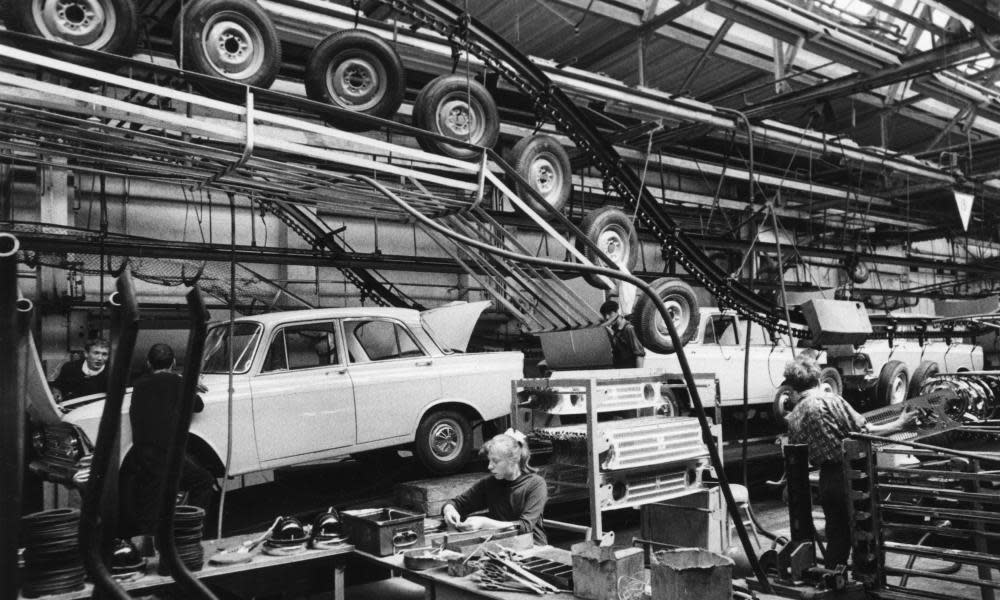Russia to take over Renault’s Moscow factory to revive Soviet-era car

French carmaker joins other western firms leaving Russian market, with option to return within six years
The Moscow city government is to take over a factory belonging to the French carmaker Renault and use it to revive the Soviet-era Moskvitch in Russia’s first major nationalisation of a foreign company during its war in Ukraine.
The development, which was met with ridicule by Russians with long memories, follows Renault’s decision to join the wave of western companies such as McDonald’s and Siemens leaving the Russian market as the war in Ukraine nears its fourth month.
Renault has ceded its 68% stake in Russia’s biggest carmaker, AvtoVAZ, with an option to buy it back within six years. According to media reports, the company’s Russian assets were sold for one rouble, meaning the city of Moscow has effectively taken control of the factory free.
Renault’s CEO, Luca de Meo, said in statement that the company was protecting its future business in Russia. “Today we have taken a difficult but necessary decision, and we are making a responsible choice towards our 45,000 employees in Russia while preserving the group’s performance and our ability to return to the country in the future.”
Hawkish commentators such as the head of Russia Today, Margarita Simonyan, have said foreign companies that leave the Russian market should have their local assets seized. Moscow’s mayor, Sergei Sobyanin, appeared to defend Renault’s decision and said the city would take over the factory to prevent unemployment.
“The foreign owner decided to close the Moscow Renault plant,” said Sobyanin. “This is its right, but we cannot allow thousands of workers to be left without work. Therefore, I decided to take the plant under control of the city and resume the production of passenger cars under the historical Moskvitch brand. We will try to keep most of the team working directly at the plant and its associates.”
For Russians who have joked about the country’s return to Soviet isolation, the revival of the Moskvitch was the perfect punchline. “Russia has invented a time machine,” wrote one. “It can move the whole country through time, but only back into the Soviet Union.”
The satirical website Panorama predicted the revival of the Moskvitch a month ago when it wrote a fake headline that the Renault factory had “assembled its first Moskvitch in 20 years”.
“Panorama does not make predictions, we report exclusively on real news from the future,” it wrote on Monday after the deal was announced.
McDonald’s announced on Monday that it would be leaving the Russian market and selling its 850 locations to a local buyer.
“The humanitarian crisis caused by the war in Ukraine, and the precipitating unpredictable operating environment, have led McDonald’s to conclude that continued ownership of the business in Russia is no longer tenable,” the company said.
The opening of the first McDonald’s on Moscow’s Pushkinskaya Square in 1990 was a major event. More than 30,000 Soviet citizens formed a queue kilometres long to sample the burgers, fries and soft drinks.
Russian state news agencies said the stores would reopen by mid-June. “McDonald’s will return to Russia in June under a new brand,” Tass cited a source as saying. “The restaurant chain and menu will be preserved, as will the jobs. More than 90% of suppliers are Russian, cooperation with them will continue. In fact, only the name will go.”

 Yahoo News
Yahoo News 
